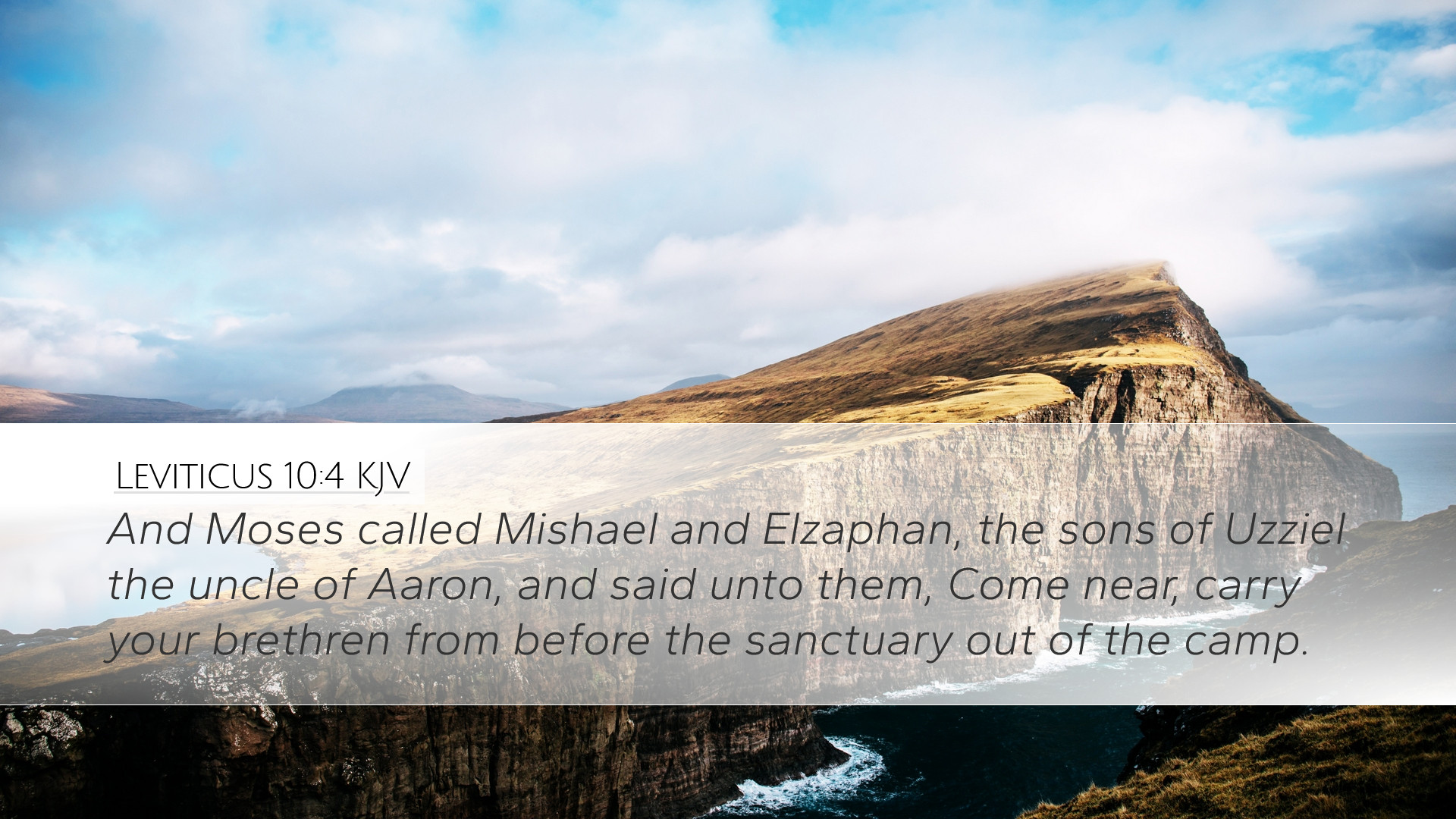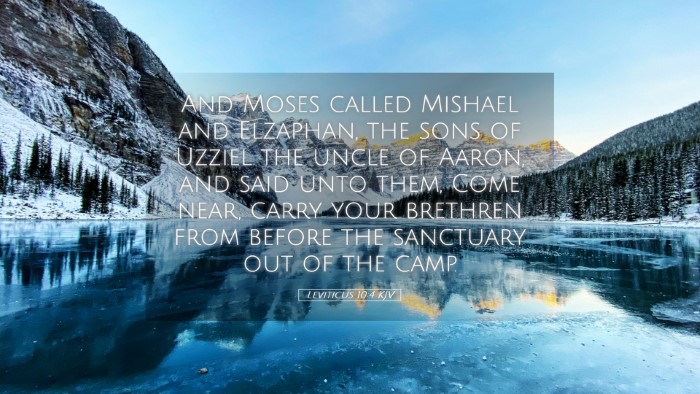Commentary on Leviticus 10:4
Verse: "And Moses called Mishael and Elzaphan, the sons of Uzziel the uncle of Aaron, and said unto them, Come near, carry your brethren from before the sanctuary out of the camp."
Introduction
This verse is situated within a severe context following the tragic events of Nadab and Abihu, the sons of Aaron, who presented "strange fire" before the Lord and were consumed by divine fire as a result of their irreverence. In Leviticus 10:4, Moses calls upon the relatives of the deceased priests to carry out their bodies, emphasizing the solemnity and seriousness of approaching God and the consequences of deviating from His instructions.
Context and Significance
- The Death of Nadab and Abihu: This event serves as a stark reminder of God's holiness and the necessity of proper worship. The immediate context illustrates the severity of disobedience against God's commandments.
- Role of Aaron's Family: The mention of Mishael and Elzaphan underscores the importance of priestly lineage and the responsibilities inherited within these roles. The priests are tasked with leading the people in worship, and their conduct must reflect the holiness of God.
Insights from Commentators
Matthew Henry
Henry speaks to the gravity of the moment when the Israelites witness the results of Nadab and Abihu's actions. He notes that God’s judgment should invoke a sense of solemnity among the people. In this moment of mourning, the call to Mishael and Elzaphan to carry away the deceased illustrates both respect for the dead and a necessary continuation of sacred duties.
Albert Barnes
Barnes provides a reflection on the significance of the action taken by Moses. He highlights the necessity of maintaining order among the priests. Carrying the bodies outward from the sanctuary signifies the need to remove the influence of sin and error from the sacred space of worship, thus ensuring God's presence remains among His people. The act serves as an admonition to future generations regarding the importance of adhering closely to divine commandments.
Adam Clarke
Clarke elaborates on the role of Mishael and Elzaphan, asserting their urgency in obeying Moses' command. He emphasizes the representation of the family and the preservation of their duties as priests. Their involvement is indicative of the broader theme of community and responsibility in the priesthood, illustrating the communal aspects of worship and accountability within the body of believers.
Lessons for Today
- Holiness of Worship: The events surrounding this passage remind modern practitioners of the high standard to which God calls His people. Worship should never be approached lightly or outside the parameters established by Scripture.
- Community and Accountability: The interconnection between the priests signifies the importance of mutual support and accountability among believers within the Church today. As leaders and members of the body of Christ, there is a shared responsibility to uphold righteousness and support one another in holiness.
- Response to Judgment: Nadab and Abihu's fate serves as a warning to take God's statutes seriously. The tone of the passage compels today’s believers to reflect on their hearts and intentions in worship, advocating for a sincere approach to God.
Conclusion
Leviticus 10:4 encapsulates a profound moment of instruction and reflection on the nature of worship. Through careful examination of the texts by respected commentators, we understand the attributes of God’s holiness, the seriousness of following His commands, and the community dynamics within the body of believers. These lessons, while rooted in ancient Scripture, resonate deeply within the frameworks of contemporary faith practices, calling each generation back to reverence for God's presence, commands, and the sacredness of worship.


